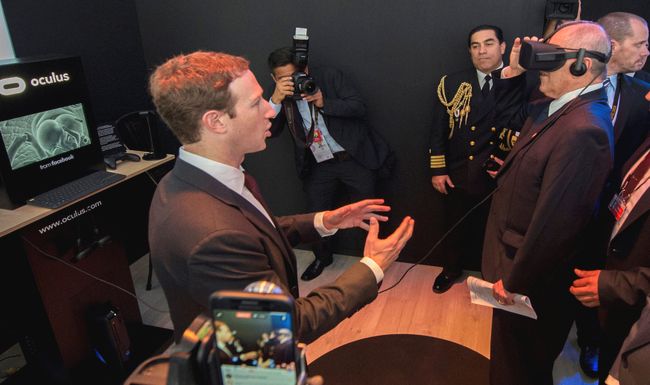Will the world get back to protectionism?
or Why Trump wants to withdraw from the Trans-Pacific Partnership
The events of the past few days may change radically the global market development in the coming decades. Let us focus on the three of them. The first is the Asia-Pacific Economic Cooperation summit in Peru on November 19-20. The second is the statement the US president-elect Donald Trump made on November 22 about his plans for the first 100 days in office. And, finally, the third one is the OPEC meeting to be held on November 30 in Algeria.
The latter is still to take place, but the information about the meeting’s likely decisions has already produced some noticeable “results.” Worldwide oil prices have shot up after Iran’s statement. According to Iranian Oil Minister Bijan Zanganeh, the likelihood of the OPEC countries reaching an agreement on a production cut on November 30 is rather high. The minister noted that if the agreement was reached, crude prices might rise to $55 a barrel.
In its turn, the summit of the Asia-Pacific Economic Cooperation (APEC) member states in Peru ended with a thought-provoking declaration.
The document outlined the main issues of the global economy, such as the use of financial and human resources, the development of free trade, improving the business environment, improving the quality of people’s lives.
According to Deutsche Welle, the leitmotif of the document was the desire of all APEC economies despite the political climate, to work on the preparation of a new agreement on free trade as a mechanism for “sustainable, balanced, and inclusive economic growth.”
“We reiterate our determination to keep our own markets open and resist all forms of protectionism,” the document says. Confirming these words, the summit participants agreed to extend to 2020 the moratorium on protectionist measures as well as decommissioning of existing programs which weaken free trade, slow recovery, and hinder the development of the world economy.
Meanwhile, the US president-elect Donald Trump announced the other day that one of his first steps in office would be... withdrawal from the Trans-Pacific Partnership (TPP, an international commercial and economic organization that aims to establish a free trade area in the Asia-Pacific region).
He said this in a video address to the American people. Trump emphasized that the “America first” principle would be a top priority for him in office.
For example, his first step in trade will be withdrawal from the Trans-Pacific Partnership agreement. Instead, the US president-elect says he will conclude “fair bilateral deals.”
“I am going to issue our notification of intent to withdraw from the Trans-Pacific Partnership, a potential disaster for our country. Instead, we will negotiate fair bilateral trade deals that bring jobs and industry back onto American shores,” Trump pointed out.
Japan’s Prime Minister Shinzo Abe has already commented on Trump’s words, saying that the US’s withdrawal from the Trans-Pacific Partnership will upset the balance. “The TPP would be meaningless without the United States,” Reuters quotes Abe as saying to journalists in Buenos Aires.
“WE HAVE UNIQUE RESOURCES TO BE A COMPETITIVE PARTNER ON FOREIGN MARKETS”
Ihor HUZHVA, expert, CMD-Ukraine:
“Ukraine must pay attention at global processes, be it liberalization or protectionist measures. There is no alternative to this.
“The main question is: how should we react to any changes? In my view, in the simplest way. We have unique resources, and an effectively use them can, first of all, fill the domestic market with farm produce and make us a competitive partner on foreign markets.
“But this requires a synergy of the state and business, as well as hard work. For a guaranteed quality of products is not a sufficient condition for effectively entering the market. What we need is a business culture.
“In this context, it would be perhaps worthwhile to clearly delimit responsibility for industrial and farming production, governmental policies, and sales.
“As for the role of governmental policies, here’s a very illustrative example: the export duty on sunflower seeds, in spite of all the possible obstacles on the part of Ukrainian businessmen and officials, as well as on the part of foreign partners, has helped create an integrated business model, which enables us to export oil, not seeds.
“Accordingly, a similar policy should be carried out with respect to wheat, corn, etc.”
Newspaper output №:
№71, (2016)Section
Economy





